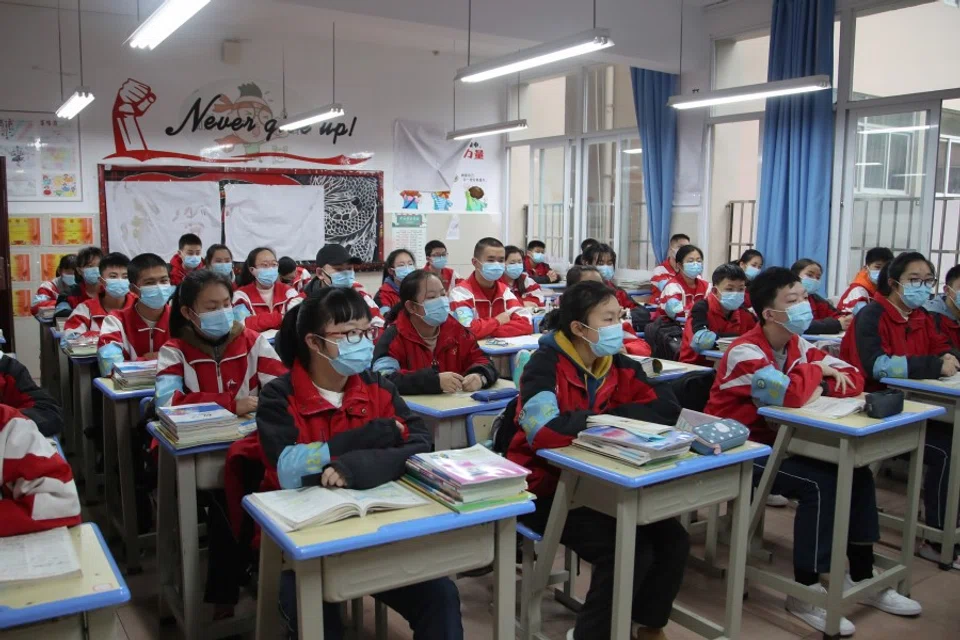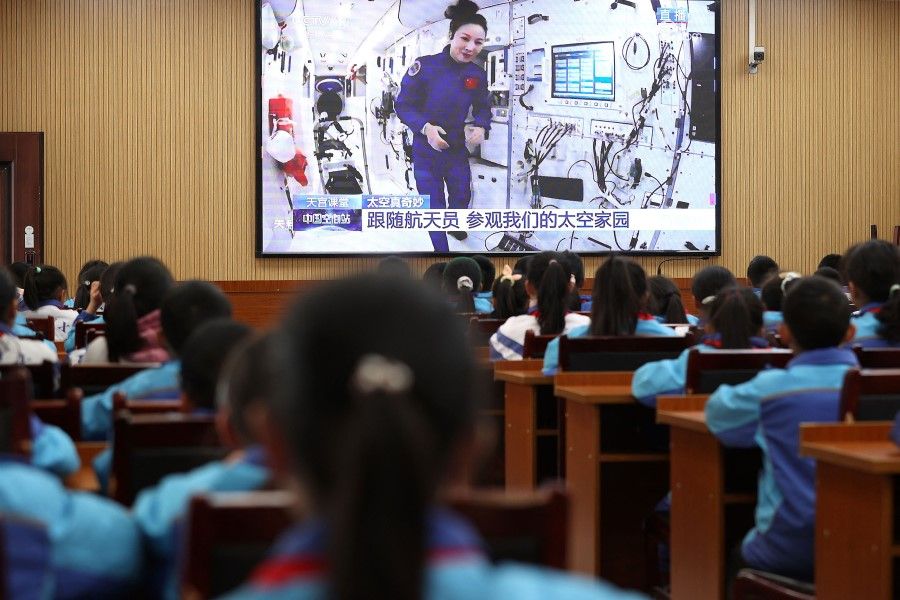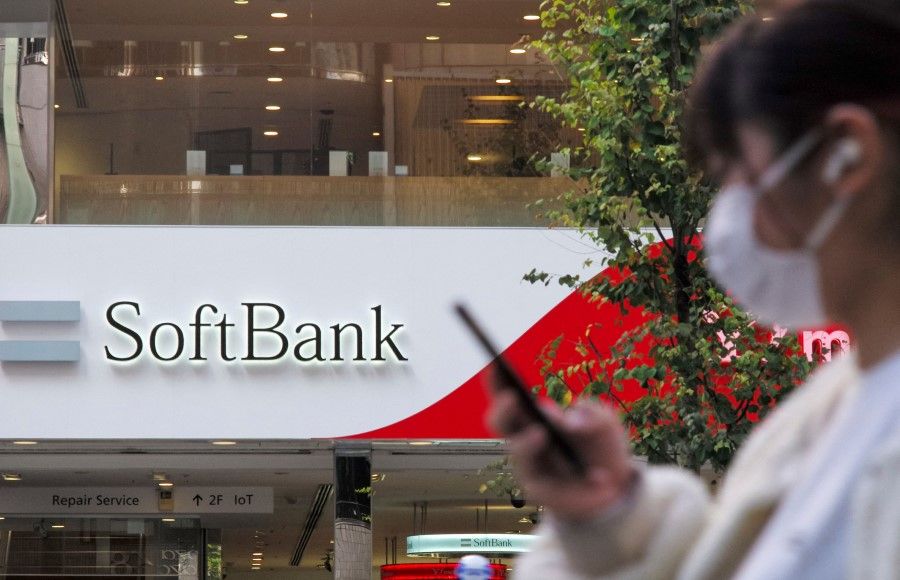Investing in China: Why didn't anyone foresee the regulatory clampdown on the tutoring industry?

On 24 July 2021, the Chinese government released a set of guidelines aimed at reducing the burden of excessive homework and off-campus tutoring for students undergoing compulsory education, also known as the "double reduction policy".
The guidelines said that academic education companies would be barred from going public to raise capital and must not operate commercially. Neither must they organise curricular training or tutoring on the school curricula on national holidays, rest days and during the summer and winter vacations. All of these companies must be registered as non-profit organisations.
Volatility in the after-school tutoring sector
This regulatory intervention has signalled the end of the race towards IPO for China's private education sector. Singapore investors, including Temasek Holdings and GIC, are facing the predicament of being unable to exit from the sector to cash out.
On the evening before the document was issued, education sector stocks in the US market declined sharply when the market opened. When the market closed, the share prices of TAL Education Group (TAL), Gaotu Techedu Inc. and New Oriental Education & Technology Group Inc. (New Oriental) were down by 71%, 63% and 54% respectively. Currently, the share prices of these three leading education companies have dropped nearly 90% since the start of the year.
Since early 2020, Covid-19 has sharply boosted the demand for online education. However, some education companies have taken advantage of Chinese families' emphasis on education to create anxiety in their marketing spiel such as "Come to us to nurture your child, otherwise we will train your child's competitors".
Since May 2021, due probably to these education anxieties, the Baidu Index has shown a significant increase in the frequencies of searches for keywords such as "neijuan" (内卷,involution)and "jiwa" (鸡娃, literally "chicken/hen" and "baby/child", or a "chick", and figuratively to fire up or motivate one's children or ply them with classes and activities so that they will do better).
In addition, due to capital influx, education companies use high salaries to attract outstanding graduates from eminent universities and teachers with many years of experience from well-known schools, causing society to be worried about fairness in education.
ESG rating agencies have previously predicted numerous black swan events, including those that involved the Liaoning Huishan Dairy Group and Kangmei Pharmaceutical Co. Did the ESG rating lose its predictive ability in this instance?

This regulatory intervention is not without forewarning. The opinions on the double reduction policy were passed at the 19th Meeting of the Central Comprehensively Deepening Reforms Commission on 21 May 2021. On 1 June 2021, 15 tutoring companies were fined a total of 36.5 million RMB (S$7.82 million) for false advertising, fraudulent pricing and other reasons.
However, during this period of time, the capital market did not react strongly to this and ESG (Environmental, Social and Governance) rating agencies such as MSCI and Sustainalytics did not adjust the ratings of education companies.
ESG rating agencies have previously predicted numerous black swan events, including those that involved the Liaoning Huishan Dairy Group and Kangmei Pharmaceutical Co. Did the ESG rating lose its predictive ability in this instance?
ESG ratings failed to predict regulatory clampdown
The mainstream ESG rating agencies have their proprietary ESG rating methodology, which rates a company based on the industry it is in and by applying weightings to the relevant selected key issues.
In MSCI's ESG ratings, the scores for Social, comprising the three components of human capital development, privacy and data security, and product safety and quality, account for 72% and 62% respectively of the total ESG scores for TAL and New Oriental.
It is noteworthy in MSCI's rating reports on these two education companies that while the penalties imposed by regulators on their false advertising were mentioned, their overall ratings are unaffected.
This illustrates two limitations of the ESG rating in dealing with this black swan event in the education industry. First, high scores in some areas can offset low scores in others. Second, the rating is concerned only with the ESG impacts within the company's business and ignores the externalities and amplification of these impacts.
Due to investors' pressures for growth and to meet targets including gross profit margin, these anxieties are transferred to students' families and the society as the companies race to be ahead in the IPO journey.
Education companies peddling anxiety
The obsession with ESG ratings alone can easily result in the neglect of the root of the problem. Many online education companies have often started up with the original intention of reducing costs and improving the accessibility of quality education, which are in alignment with the UN Sustainable Development Goals. However, the significant mission drift from industry reformers to peddlers of anxiety is beyond explanation by ESG ratings.
In fact, false advertising by education companies also stems from their anxiety due to increasing competition within the industry fuelled by abundant capital from investors. Due to investors' pressures for growth and to meet targets including gross profit margin, these anxieties are transferred to students' families and the society as the companies race to be ahead in the IPO journey.
In other words, the growth of education companies is at the expense of society by peddling anxiety as well as sacrificing public confidence in fairness in education, and this leads to the companies' lack of concern on sustainability. With growing public dissatisfaction, regulatory intervention will be inevitable. Conventional ESG ratings will not reflect this trajectory of consequences.

The existing ESG rating system is unlikely to accurately evaluate the social externalities and indirect social influence of the education industry. Education, which is of special significance for Chinese families and society, is not an ordinary consumption. Every negative public opinion regarding education will touch the rawest nerve of society, ultimately resulting in the unwillingness to raise kids thus the declining birth rates.
Due to the sociocultural differences, the rating methods of some ESG rating agencies, which are mostly based in Western countries, have not been correspondingly and locally adjusted in view of the unique role of education in China. Although ESG rating agencies have already acquired the information on the penalties on the companies for false advertising, they rated the impact as "Minor" and failed to predict this black swan event. This is instructive for a rethink on evaluating ESG for the education industry.
Do we mechanically compare companies' disclosure of ESG information and the extent of overlap with agencies' rating methodology, or scrutinise whether the current ESG rating methodology is concerned with the social problems created by education companies?
ESG ratings of the education industry should be adjusted for a country's culture and developments as well as incorporate the real needs of sustainable social development.
To this end, we can reexamine the UN Sustainability Development Goals in attempting to address several questions. Have education companies broadened the scope of education? Have they enhanced education's inclusiveness and reduced potential discrimination? Have they increased students' learning effectiveness and their subsequent employability?
ESG ratings of the education industry should be adjusted for a country's culture and developments as well as incorporate the real needs of sustainable social development.
Weighing costs to society
At a macro level, the shake-up of China's education industry is part of the government's strategy to promote social equality. This is also happening in industries such as online student loans and online takeaway platforms that employ workers without contributing to their social security.
Online narratives of "industries that are in a complicated muddle or detrimental to birth rates are not worthy of profit" have surfaced. Possibly told in jest, these narratives also illustrate that some companies are achieving business success at the cost of society. If these social costs are monetised, profits will likely be minimal.
A company whose impact is aligned with the government's development strategy, will eventually be able to translate such positive impact into its own value, driving business growth.

Softbank, which has suffered significant losses in this series of shake-ups, has announced that it would suspend its investments in China and observe the country's developments. This has fuelled investors' discussions on the political risks of investing in China.
The logic in the Chinese government's intervention in industries that are in a dire muddle is consistent with the restrictions earlier imposed on highly polluting industries, with high energy consumption or with excess manufacturing capacity. High-quality economic development must not be at the expense of the environment or the people's happiness.
Investors in China can study a potential company's social externalities and their alignment with national policies in their investment analysis, to supplement conventional ESG evaluation. A company whose impact is aligned with the government's development strategy, will eventually be able to translate such positive impact into its own value, driving business growth.
Singapore, a society that is largely Chinese culturally, also attaches great importance to education. The size of its tuition industry has grown from S$1.5 billion in 2017 to nearly S$1.7 billion in 2019. Unlike China, Singapore has not directly intervened in the similarly "involuted" education industry. Instead, it addresses the fundamental issue of increased demand for tutoring by enhancing its policy on lifelong learning. Education, from the perspectives of the government, investors, companies and parents, must revisit its raison d'être, and that is: knowledge, not scores, changes lives.
Related: China to impose strict measures on tuition centres to allay anxiety over education | Faster, higher, stronger: China's kids pushed to breaking point | A Chinese education: Why are Chinese parents and kids going to extremes? | Parents and teachers brace themselves for China's new school year under the 'double reduction' policy | China's tutoring industry finding new ways to survive after government crackdown | China's tutoring crackdown: It is not a random act by the Chinese government

